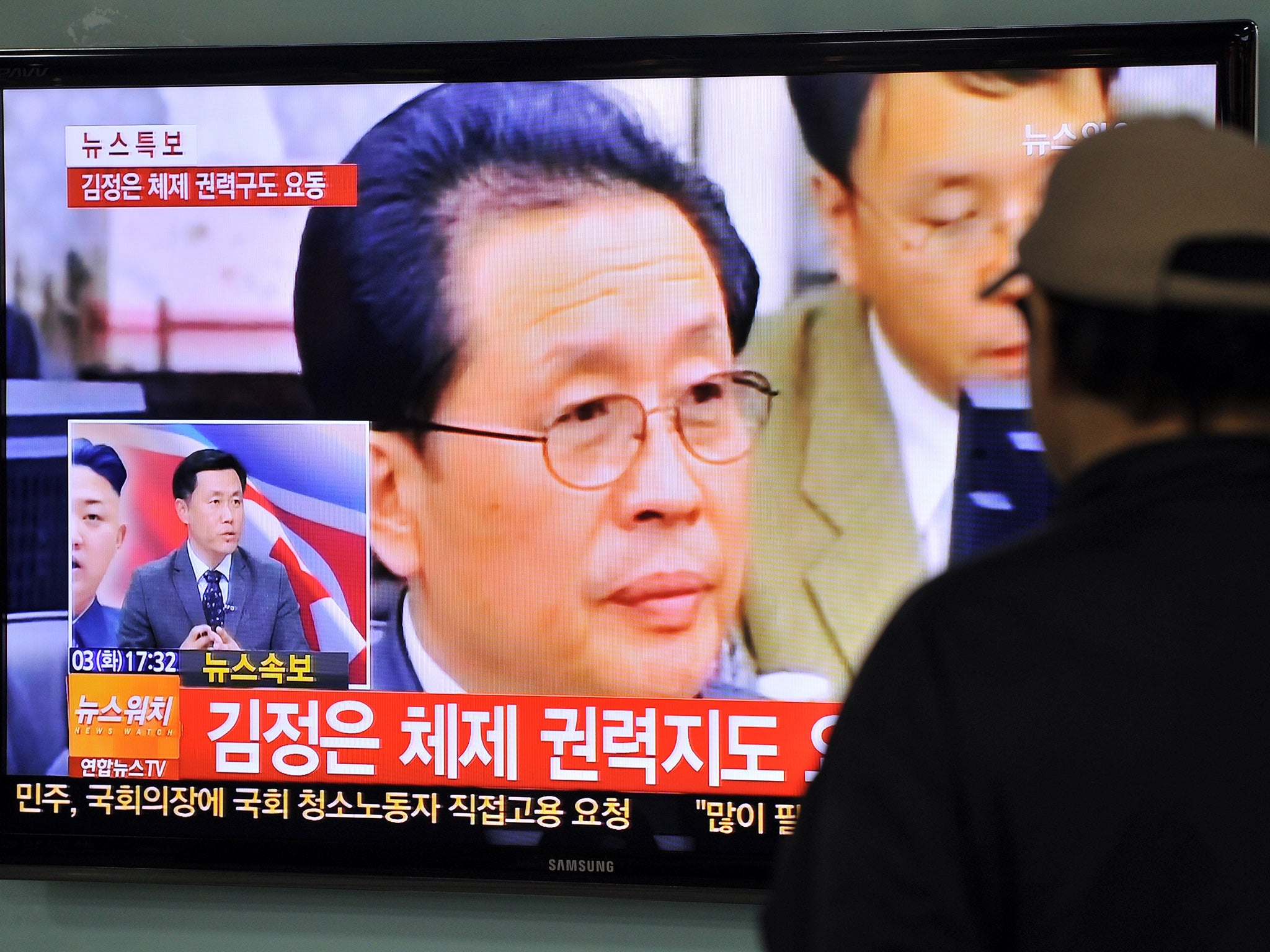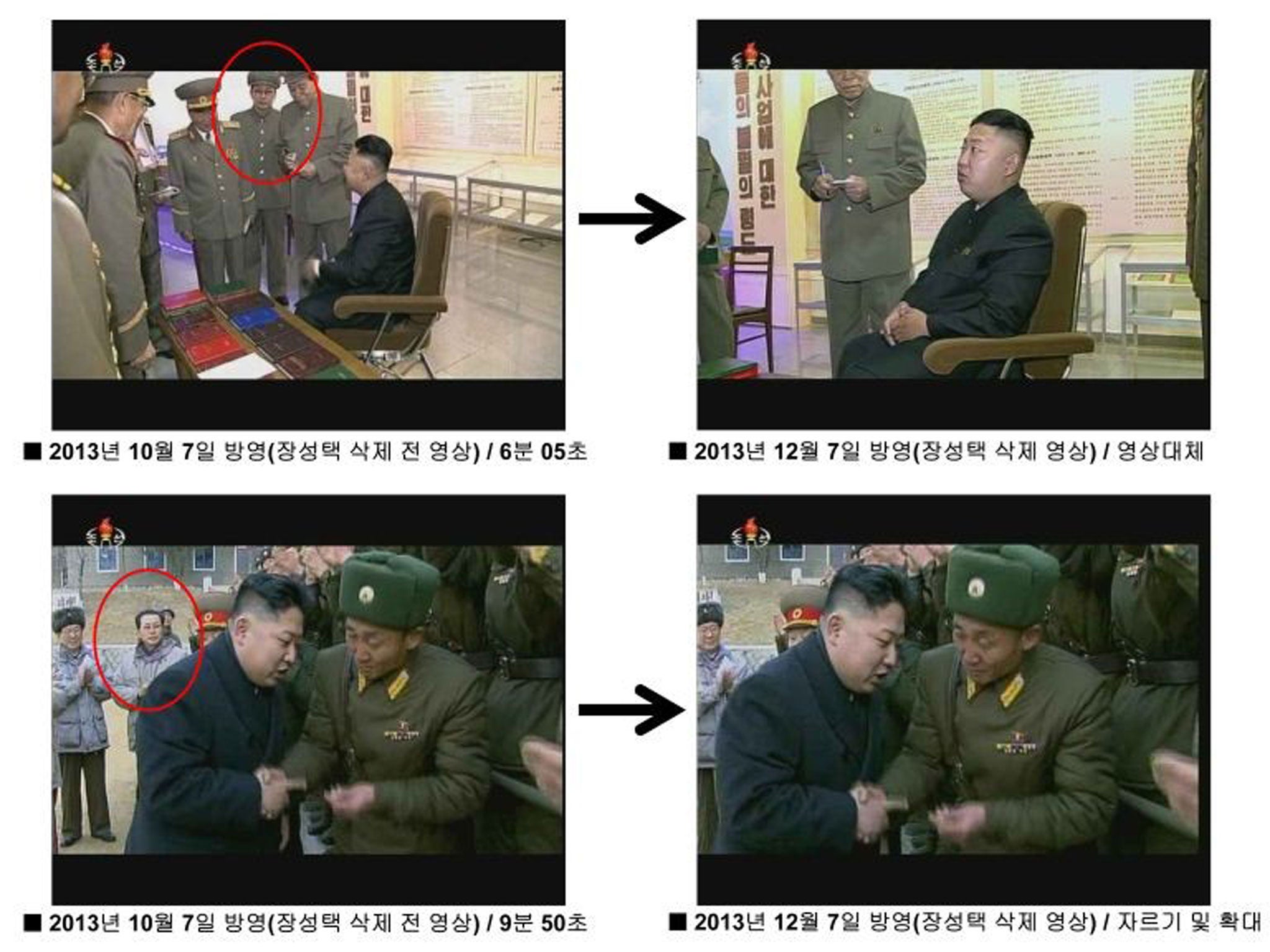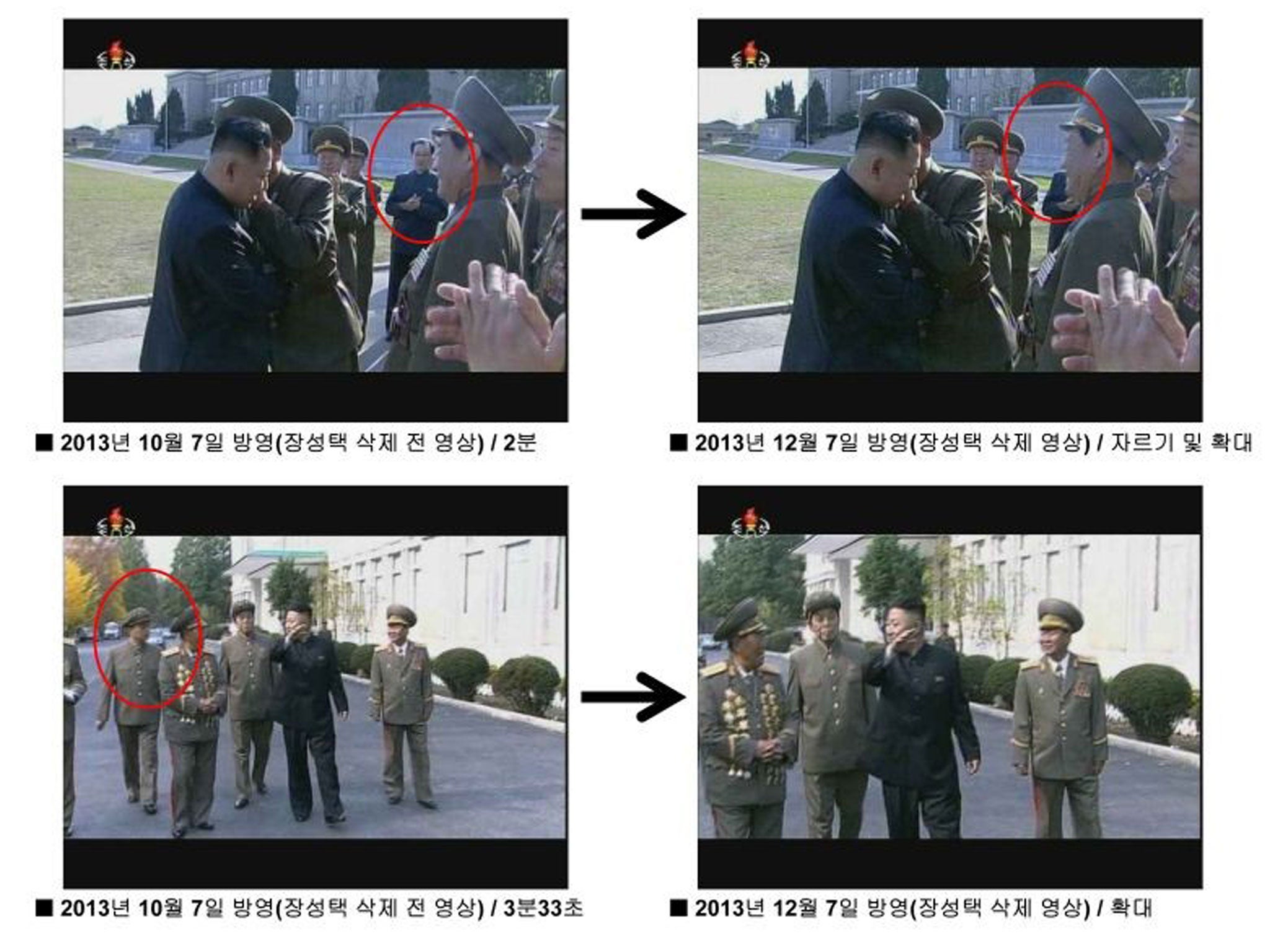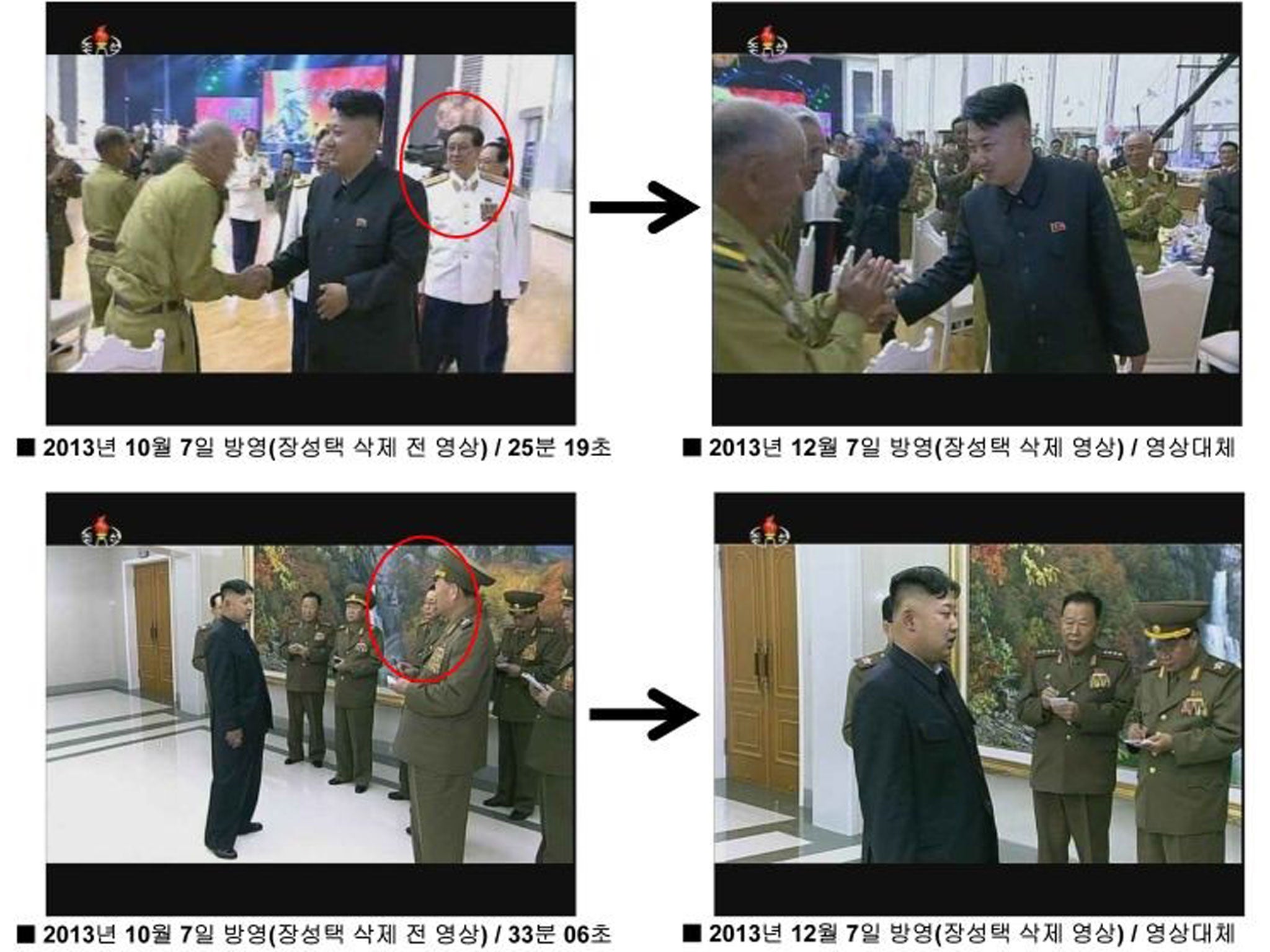North Korea confirms removal of Kim Jong-un’s 'depraved' uncle Jang Song Thaek
Jang was once seen as Kim's mentor long considered the country's second power - but his removal was blamed on 'corruption, drug use, gambling and womanizing'

Your support helps us to tell the story
From reproductive rights to climate change to Big Tech, The Independent is on the ground when the story is developing. Whether it's investigating the financials of Elon Musk's pro-Trump PAC or producing our latest documentary, 'The A Word', which shines a light on the American women fighting for reproductive rights, we know how important it is to parse out the facts from the messaging.
At such a critical moment in US history, we need reporters on the ground. Your donation allows us to keep sending journalists to speak to both sides of the story.
The Independent is trusted by Americans across the entire political spectrum. And unlike many other quality news outlets, we choose not to lock Americans out of our reporting and analysis with paywalls. We believe quality journalism should be available to everyone, paid for by those who can afford it.
Your support makes all the difference.North Korea has announced the sacking of leader Kim Jong-un's uncle, the man long considered the country's second in command, citing corruption, drug use, gambling, womanizing and a generally “dissolute and depraved life” that has resulted in Pyongyang's highest-profile fall from grace since Kim took power two years ago.
Not long after Jang Song Thaek been removed from power as part of a series of purges in the country’s leadership, startling images emerged showing Kim’s former mentor had been retrospectively cut out of official videos and photographs.
The removal of Jang Song Thaek, once seen as Kim's mentor, is the most significant in a series of purges the young leader has conducted in an apparent effort to bolster his power since his father's 2011 death.
The confirmation that Pyongyang had “eliminated Jang and purged his group” carried in an unusually detailed and lengthy dispatch by the North's official Korean Central News Agency, and was seen by some analysts as a warning against dissent. It came about a week after South Korea's spy agency said that two of Jang's closest assistants had been executed for corruption.
North Korean state TV showed a still image of two uniformed guards holding Jang by the arms at a meeting of the country's Political Bureau as dozens of dark-suited officials seated behind rows of long desks looked on.
And in the aftermath of the attack, images of Jang appearing on state visits alongside Kim were cropped down in order to erase any memory of the now disgraced family member.

With tensions on the Korean Peninsula still high following a torrent of threats in March and April by Kim's government against Washington, Seoul and Tokyo, there were fears in Seoul that confusion in the North could lead to a miscalculation or attack. Experts believe Pyongyang has a handful of crude nuclear bombs. South Korea's defense ministry said there have been no suspicious military movements, however.
The allegations against Jang, 67, couldn't be independently confirmed, and there was no mention of further punishment for him.
Jang, seen by outsiders as the North's leading supporter of Chinese-style economic reforms, has reportedly been cast down before only to return to power. But Monday's announcement was especially shrill, even by the standards of North Korea's state media, suggesting this time he won't be coming back.

“I believe it shows Kim Jong-un is firmly in control and confident enough to remove even the senior-most officials,” said Bruce Klingner, an Asia specialist at the conservative Heritage Foundation think tank in Washington. “Kim has purged hundreds of officials since ascending the throne two years ago. ... Kim originally focused his wrath against the military, but by removing Jang, a senior Korea Workers' Party official, the bloodletting may now be directed against real or imagined enemies within the party structure.”
Jang — who is married to Kim Jong-un's aunt, Kim Kyong Hui, the younger sister of Kim Jong Il — was described as “abusing his power,” being “engrossed in irregularities and corruption,” and taking drugs and squandering money at casinos while undergoing medical treatment in a foreign country. The dispatch also said he had “improper relations with several women and was wined and dined at back parlors of deluxe restaurants.”
“Affected by the capitalist way of living, Jang committed irregularities and corruption and led a dissolute and depraved life,” it said.

The decision to strip Jang of all posts and titles and expel him from the ruling Workers' Party was made at a Political Bureau meeting of the party's Central Committee on Sunday. The dispatch also said that the purge would extend to supporters of Jang but did not provide details.
Referring to North Korea as a “popular democratic dictatorship,” Monday's state media dispatch said “Jang seriously obstructed the nation's economic affairs and the improvement of the standard of people's living.” Kim Jong-un has vowed to lift the country from poverty while also pursuing a nuclear weapons program that has drawn worldwide criticism — and heavy economic sanctions.
The announcement also hinted that Jang was trying to build a powerbase of his own to rival that of the party status quo, saying that he committed anti-party, counter-revolutionary acts and “pretended to uphold the party and leader” while double-dealing behind the scenes.

Jang has held a string of senior jobs, including membership in the National Defense Commission, the government's top ruling body. He served as a leading economic policy official in charge of the push to draw foreign investment, traveling in 2012 to China to discuss the establishment of special economic zones. He had also assumed responsibility for North Korea's burgeoning sports industry, a pet project of Kim Jong-un's.
Kim Jong-un has reportedly overseen other purges of senior officials, though none as high profile as this one.
One of the most notable personnel changes was the 2012 firing of military chief Ri Yong Ho, who was once also dubbed a mentor to Kim Jong-un. State media said he was dismissed in July 2012 due to an unspecified illness, but analysts speculated that Ri was purged because Kim wanted to reshape the power structure.
The North publicly executed 17 people last year and 40 this year, according to lawmakers in Seoul who were briefed by South Korea's spy agency last week.
AP
Join our commenting forum
Join thought-provoking conversations, follow other Independent readers and see their replies
Comments